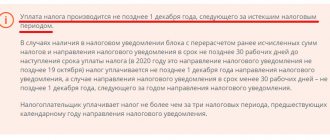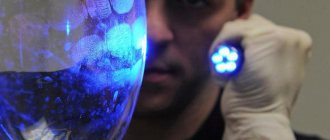ST 21 of the Criminal Code of the Russian Federation.
1. 1. A person who, at the time of committing a socially dangerous act, was in a state of insanity, that is, could not realize the actual nature and social danger of his actions (inaction) or control them due to a chronic mental disorder, temporary mental disorder, dementia, is not subject to criminal liability. or other painful mental state.
2. A person who has committed a socially dangerous act provided for by criminal law in a state of insanity may be imposed by a court with compulsory medical measures provided for by this Code.
Commentary to Art. 21 Criminal Code
1. The presence of a person in a state of sanity at the time of committing a crime is the third mandatory characteristic of a subject. In criminal law, sanity is defined negatively - through the disclosure of the opposite concept of insanity.
In criminal law, there is a presumption of sanity, according to which a person is presumed sane until the contrary is proven. The presumption is therefore rebuttable.
Insanity is revealed through a combination of three legally significant criteria of insanity.
2. The medical criterion of insanity presupposes the presence of a chronic mental disorder, temporary mental disorder, dementia or other painful mental state in a person.
The legal criterion of insanity is related to the fact that the disease affects a person’s behavior, i.e. due to an existing illness, a person could not realize the actual nature and social danger of his actions (inaction) (intellectual version of the criterion) or alternatively manage them (volitional version of the criterion). Attention should be paid to the degree of expression of the legal criterion: a person must be completely deprived of the ability to realize the actual nature and social danger of his actions (inaction) or to manage them.
The temporal criterion of insanity is contained in the words “during the commission of a socially dangerous act.” The state of insanity is established in connection with a specific act imputed to the person; a person who was in a state of sanity at the time of committing a crime, but subsequently fell ill with a mental disorder, depriving him of the ability to realize the actual nature and social danger of his actions (inaction) or to direct them, is subject to release from punishment (Article 81 of the Criminal Code) and, in the event of recovery, may subsequently incur criminal liability for a previously committed crime.
3. A person who has committed a socially dangerous act in a state of insanity is not the subject of a crime; what he did is not considered a crime. The legal consequences of insanity are provided for in Part 2 of the Article and Chapter 15 of the Criminal Code.
Second commentary to Art. 21 of the Criminal Code of the Russian Federation
1. Modern criminal law doctrine does not equate sanity with mental health. Health, as well as its absence, illness are relative concepts. For the criminal legal status of “subject of a crime,” what matters is not a person’s health (or lack thereof), but his quality as a subject of responsibility. Insanity is the mental status of a person established on the basis of medical and legal criteria, excluding his ability to act as a subject of a crime (to be a bearer of criminal legal status). Establishing the insanity of a person who has committed a socially dangerous act is the prerogative of the court, which makes its decision based on an assessment of the medical characteristics of the person’s mental state and its own conclusions about how this condition influenced his behavior in the circumstances of the commission of a socially dangerous act. According to this, medical (biological) and legal (psychological) criteria are distinguished, the totality of which determines insanity.
2. The medical criterion of insanity determines whether a person has a mental disorder, any of those listed in Part 1 of Art. 21 CC.
Chronic mental disorder (mental illness with a tendency to progress), leaving after acute clinical manifestations an increasing mental defect in the form of irreversible impairment of intellectual functions of an acquired nature (for example, schizophrenia, epilepsy, manic-depressive psychosis, progressive paralysis, senile psychosis and others). A temporary mental disorder is a reversible illness that can last from a few minutes to several hours and even days, in rare cases - several weeks. It ends with recovery, leaving no visible changes in mental activity (for example, exceptional and reactive states, alcoholic psychosis). Dementia is a mental disorder characterized by severe irreversibility of impairments of intellectual function, both congenital and acquired (for example, mental retardation, involutional processes). Another painful condition is a persistent disorder or anomaly in the development of the psyche, resulting from various somatic, neurological, infectious and other diseases or pathological upbringing (for example, psychopathy).
The classification and symptomatology of mental illnesses (disorders and painful conditions) belongs to the field of psychiatry. Therefore, lists of diseases related to medical signs of insanity are approved by the Decree of the Government of the Russian Federation and are used by specialists when formulating the conclusions of their expert studies.
3. Legal criterion of insanity. For a court decision on insanity, one medical criterion is not enough: according to the legislative definition, it is necessary to establish the influence of a mental disorder on the behavior of a person at the time of committing the incriminated act, i.e. assess the intellectual and volitional abilities of a person in specific legally significant circumstances. The intellectual sign of insanity means that the person was not aware of the actual nature and social danger of his act in the circumstances of its commission (for example, a mother strangles her child, believing that she is caressing him).
The volitional sign of insanity means that in the circumstances of committing a socially dangerous act, a person cannot control his actions (inaction). This symptom is typical for manic mental states, in which the intellectual sphere of mental activity is not affected, but due to a disorder of the volitional sphere, the person commits a socially dangerous act under the influence of an irresistible desire (with kleptomania, pyromania, etc.).
How can age affect the determination of a criminal's sanity?
This parameter is a very important criterion for establishing the obligation to bring a person to criminal responsibility. In the Russian Federation, with few exceptions, the age of criminal responsibility begins at 16 years.
Punishment can be avoided if, during the consideration of the case, it turns out that the teenager lagged behind his peers in development. We are not talking about mental disorder as such, but an examination is also ordered to identify the child’s developmental characteristics.
Third commentary to Article 21 of the Criminal Code of the Russian Federation
1. The state of insanity means a special mental state of a person that characterizes his intellect and will during the commission of a socially dangerous act recognized as a crime. The terms “insanity” and “sanity” refer to legal concepts and characterize the subject, his ability or inability to bear criminal responsibility. Therefore, when determining sanity or insanity, law enforcement officers must analyze not questions related to the subjective side, but establish data about the identity of the subject, his condition and behavior during (at the moment) of the commission of a criminal act (see: BVS RF. 2000. N 11. C . 14).
2. In accordance with Art. 21 of the Criminal Code, the state of insanity is determined by two criteria. One of them is the presence of a painful mental state in a person, which is usually called a medical (or biological) criterion. The second criterion means that a person does not have the ability to recognize the meaning of his actions or to control them. This criterion is called legal (psychological). To declare a person insane, both criteria must be established. The medical basis for making such a decision is the conclusion of a forensic psychiatric examination, but in the end only the court recognizes a person as insane (see: BVS RF. 2003. No. 4).
3. Medical criterion of insanity in Art. 21 of the Criminal Code is a generalized list of mental disorders, including four types: 1) chronic mental disorder; 2) temporary mental disorder; 3) dementia; 4) another painful mental state. From the content of the medical criterion it follows that non-painful mental disorders should not exclude sanity. A chronic mental disorder should be understood as a group of diseases that are long-term, intractable and progressive (schizophrenia, epilepsy, progressive paralysis, manic-depressive psychosis, presenile and senile psychoses, etc.). Temporary mental disorders include mental illnesses that develop quickly, last a short time and end with complete recovery. Dementia is a painful mental state that is characterized by inferiority of mental activity. Doctors distinguish oligophrenia (congenital dementia) and its three forms: mild (debility), moderate (imbecility) and severe (idiocy). Acquired dementia (dementia) is a painful condition characterized by a decrease or complete absence of mental activity and associated, as a rule, with the disease that caused it. Another painful mental state is a disorder of mental activity of a painful nature, which does not fall under the symptoms of the three categories mentioned above. This may include the most severe forms of psychopathy, mental anomalies in the deaf and mute, the consequences of traumatic brain injury (traumatic encephalopathy), etc. Any of the listed diseases or mental deficiencies individually may be sufficient to declare a person insane from the point of view of the medical criterion of insanity. In general, the modern formulation of the medical criterion of insanity covers essentially all possible variants of mental pathology.
4. The legal (psychological) criterion of insanity is characterized by two signs: intellectual (inability to realize the meaning of one’s actions) and volitional (inability to control one’s actions). To declare a person insane from the point of view of the criterion under consideration, one of these signs is sufficient. An intellectual sign indicates that the person who committed this or that action (or inaction) is not able to understand the factual circumstances of the act or cannot realize its social significance. A volitional sign of insanity consists in a person’s lack of ability to control his actions. This is an independent sign, which, even in the absence of an intellectual sign, may indicate the presence of insanity. For this reason, the law separates these two characteristics with the conjunction “or”. A person who has committed a socially dangerous act, under a certain state of mind, may, while committing such an act, retain the ability to formally assess events and understand them, but at the same time lack the ability to direct his actions. In such cases, the presence of a legal criterion of insanity can be judged on the basis of one volitional sign. On the other hand, the inability to realize one’s actions (an intellectual sign) always indicates an inability to direct these actions and, therefore, the presence of a legal (psychological) criterion of insanity.
5. By a court decision, a person declared insane may be subject to compulsory medical measures.
This means that under certain circumstances of a socially dangerous act and information about the personality of an insane person, the mentioned measures may not be applied (see commentary to Articles 97 - 104 of the Criminal Code). The decision to apply these measures depends on the nature and degree of public danger of a socially dangerous act committed by an insane person, provided for by criminal law. ‹ Article 20. The age at which criminal liability beginsTop Article 22. Criminal liability of persons with a mental disorder that does not exclude sanity ›
By what criteria is insanity assessed in the Criminal Code of the Russian Federation?
In this section it is worth mentioning two main criteria - legal and medical. Each parameter has its own characteristics, so it’s worth talking about them in more detail:
- The legal criterion allows you to determine the signs of guilt in a particular person. Here we can note intellectual (a person is aware of his behavior) and volitional (he controls himself). The absence of one of the parameters still allows one to establish insanity.
- The medical criterion is based on the results of diagnosing the citizen’s condition and identifying mental disorders in him at the time of the commission of criminal acts.
Only a set of criteria can cause the accused person to be declared insane. Only a court has the right to declare a person inadequate after receiving opinions from all specialists. The basis for sending a person for an expert assessment may be the presence of various facts and external manifestations of a mental disorder in the accused.






